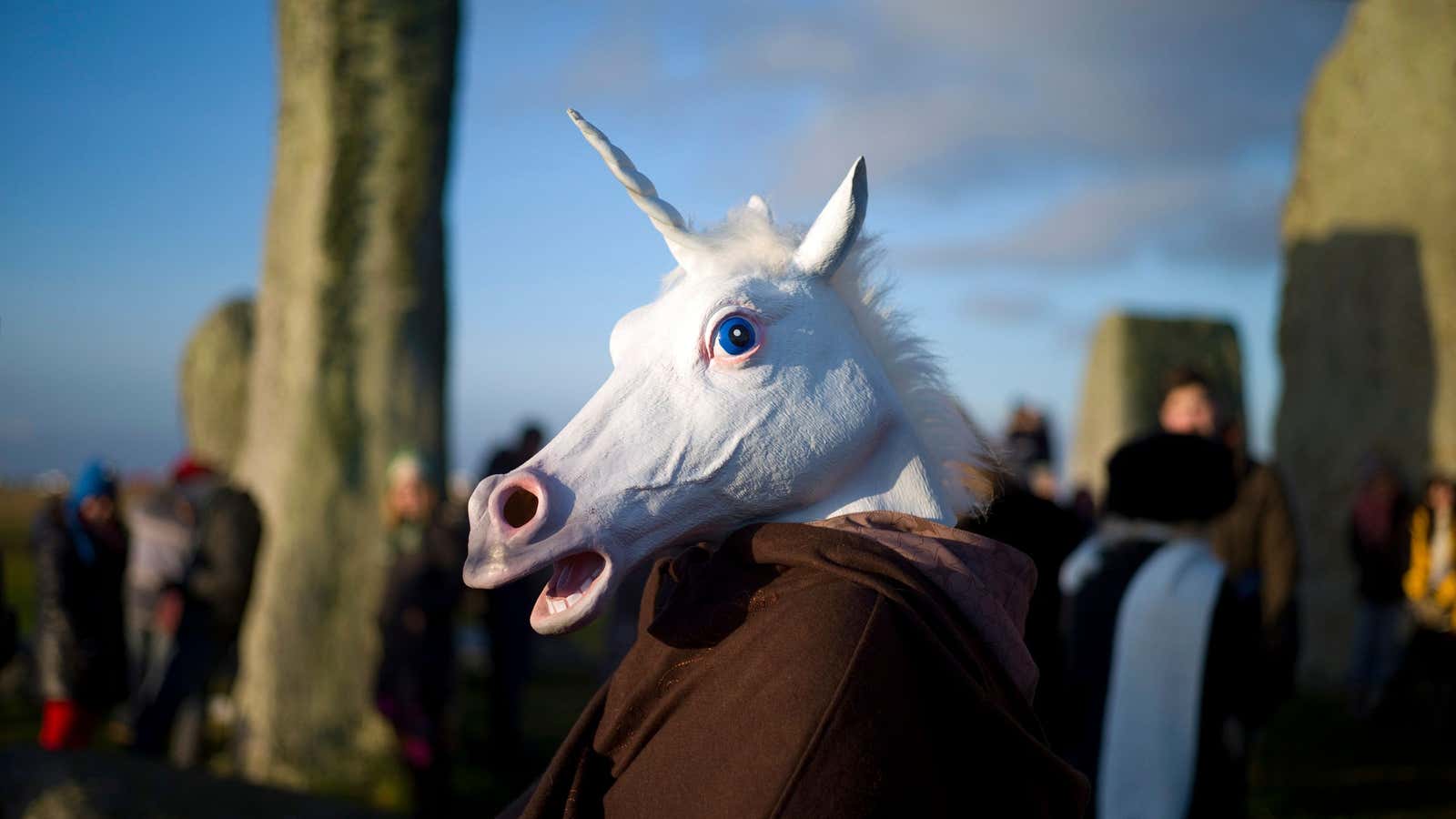Thirty-two new “unicorns”—startups valued at $1 billion or more—were birthed in Silicon Valley this year. They included flavored nicotine seller Juul Labs (valuation: $38 billion), food-delivery service DoorDash ($4 billion), and sneaker company Allbirds ($1.4 billion).
The new unicorns join an already sizable herd. According to startup-tracker CB Insights, there over 300 unicorns, roughly half of which are based in the US. They are valued at a cumulative $1 trillion.
Venture capitalist Aileen Lee coined the term unicorn five years ago in a post for TechCrunch, “Welcome to the Unicorn Club.” Lee, the founder of seed-stage venture-capital firm Cowboy Ventures, wrote that her team had identified 39 US-based software companies started since 2003 that were valued at over $1 billion by private- or public-market investors. The so-called unicorns made up 0.07% of all venture-backed startups, Lee estimated, with an average of four born each year in the past decade.
A unicorn, of course, is also a mythical creature with the body of a horse and a single horn that often has magical healing powers attributed to it. The unicorn was famously featured in the unicorn tapestries, a series of seven wool and silk tapestries from the late Middle Ages that depict the hunt and capture of a unicorn.
The point is that unicorns are supposed to be rare. But the “unicorns” of Silicon Valley no longer are.
Forty-two new unicorns were born in in the US alone in 2014, 43 in 2015, 22 in 2016, and another 34 in 2017, according to data from industry research firm PitchBook. The final count for 2018 still isn’t in, but using the 32 figure above, you could safely say that the US tech industry has averaged 35 new unicorns a year for the last five years, more than eight times the rate from when Lee coined the term.
There are so many “unicorns” in Silicon Valley that companies are now distinguished not by their membership in the club, but by how quickly they earned it. In June, electric-scooter company Bird because the fastest startup ever to achieve unicorn status, reaching a $1 billion valuation a little more than a year after it was founded. Other unicorns are so wealthy that we talk about them unironically as “decacorns.”
So let’s call these companies by another name. How about deer, because they are so common, or prairie dogs, because they keep popping up? If you want something mythical, why not the centaur, which at least lives in a herd? To describe the truly special companies, today’s 0.07% of startups, there is a literal menagerie of possibilities. But the unicorns aren’t unicorns anymore.
